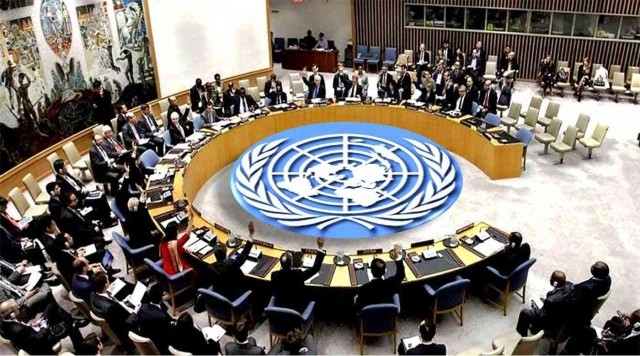UN to establish a team to support the electoral process in South Sudan

The United Nations Security Council (UNSC) Thursday requested the UN Secretary‑General to set up a dedicated team to assist the electoral process in South Sudan towards the country’s democratic future.
The 15‑member organ endorsed a presidential statement (to be issued as document S/PRST/2021/20), presented by Kenya, Council President for October, by which the Secretary‑General is requested to establish an integrated electoral assistance team led by the United Nations Mission in South Sudan (UNMISS), in support of the electoral road map detailed in the 2018 peace agreement, the UN said.
The UNSC further underscored that elections must be preceded by an inclusive, transparent constitution-drafting process, carried out in an environment that respects freedom of expression, association, and peaceful assembly, and encourages civic engagement.
The Council then urged the South Sudanese authorities to make progress on key milestones, including the necessary security arrangements, the establishment of the legal framework for elections, and the establishment of a functioning National Election Commission both in Juba and at the subnational level.
UNSC on Abyei
The mandate of the United Nations Interim Security Force for Abyei (UNISFA) and its support to the Joint Border Verification and Monitoring Mechanism, which monitors the demilitarized zone along the border between Sudan and South Sudan will expire on November 15, 2021.
The statement quoted Jean‑Pierre Lacroix, Under‑Secretary‑General for Peace Operations, as saying that the United Nations strategic review of UNISFA proposes two viable options for the reconfiguration of the mission. One would keep overall force numbers close to what they are currently, and the second would slightly reduce the troop ceiling, a move that will require more operational adjustments but should encourage Sudan and South Sudan to move forward on outstanding issues with increased urgency.
Lacroix further recommended that the UN establish a rule of law support strategy, and keep the Joint Border Verification and Monitoring Mechanism intact, adding that negotiations towards a political settlement concerning Abyei remain crucial building blocks towards an exit strategy for UNISFA.
On the developments in Khartoum, Lacroix said: “It is too early to know what the impact of this week’s developments… will mean for UNISFA on a day-to-day basis.” But all parties in Sudan are and have been, strong supporters of the Force, he said, noting that planning towards a full replacement of the current military contingent with a multinational one will continue in full speed.
The members of the UNSC condemned the military coup in Sudan, with many of them saying it is a great loss for the Sudanese people who have worked hard for democratic transition and it could potentially destabilize the wider region.
Speaking after Council members, South Sudan’s representative Akuei Malwal expressed his deepest condolences to the family and UNISFA for the peacekeeper who lost his life in Gok Machar.
He said South Sudan, the African Union, and the United Nations should also determine an interim legal framework that would regulate operations of international organizations in the Abyei Area, including issuing visas and other documents.
Malwal pointed out that the repatriation program to resettle Dinka Ngok, who have been living as refugees and displaced persons, to their original homes should be agreed upon and implemented.